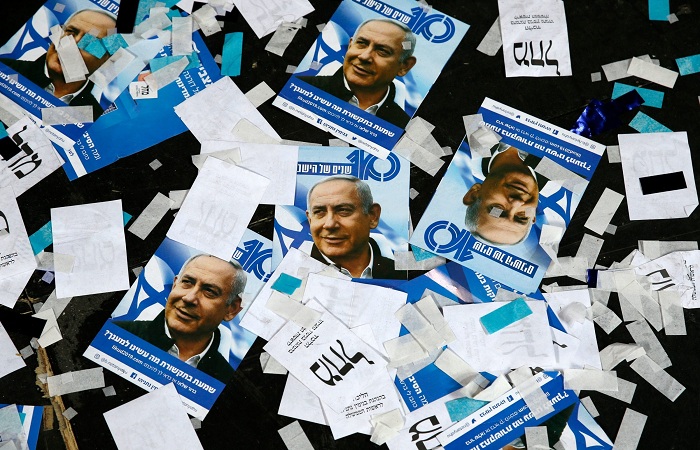Israel is all set for crucial discussions on who should be the next Prime Minister as last week’s deadlocked election threatened Benjamin Netanyahu’s long reign as prime minister.
President Reuven Rivlin was to hold separate meetings with all the political parties voted into the latest parliament, to hear their recommendations on who should be the premier.
It was far from certain that whoever gets the task will succeed in cobbling together a coalition, and there have been repeated calls for a unity government to overcome the impasse.
The consultations beginning at 5:00 pm local time (1400 GMT) and scheduled to continue Monday will be streamed live by Rivlin’s office.
The political parties will arrive in order of the number of votes received.
That means ex-military chief Benny Gantz’s centrist Blue and White alliance will arrive first, since it won 33 seats out of parliament’s 120, two more than Netanyahu’s right-wing Likud party.
Later in the evening, Rivlin will hear the recommendations of two key parties: the mainly Arab Joint List alliance, which won the third-most seats with 13, and ex-defence minister Avigdor Lieberman’s nationalist Yisrael Beitenu, which won eight.
Israel’s Arab parties have traditionally refrained from endorsing anyone as prime minister, but they have not ruled out backing Gantz this time as part of efforts to oust Netanyahu.
Lieberman could meanwhile play a kingmaker role after his campaign to “make Israel normal again” resonated with the Israeli public.
The slogan is a reference to what he sees as the excessive influence on the country’s politics of Israel’s ultra-Orthodox Jewish parties, which were a key part of Netanyahu’s previous coalition.
Lieberman, like many Israelis, says their influence has allowed the ultra-Orthodox community to impose aspects of Jewish law on secular society.
Faced with disappointing results, Netanyahu last week acknowledged he was unable to form the right-wing coalition that he had hoped for, and called on Gantz to join him in a unity government.
But Gantz, who has also called for a unity government, made his position clear — he must be prime minister under any such arrangement, since his party has the most seats.
The standoff has even raised the possibility of what many see as the unthinkable; a third election within a year, after April polls also ended inconclusively.
Rivlin would “make every effort to prevent a third set of elections,” Harel Tubi, director general of Rivlin’s office,said
“The consultations will include new offers that the public has yet to hear.”
A decision by the Arab parties to endorse someone for prime minister would be a landmark.
The last time they did so was in 1992, when they backed Yitzhak Rabin, who went on to sign the Oslo accords with the Palestinians.
Many Arab Israelis have been angered by Netanyahu’s political rhetoric and actions they view as racist towards them, and that was seen as one factor that helped boost turnout and lead to the Joint List’s strong showing.
Israel will likely to have new government coming week.



